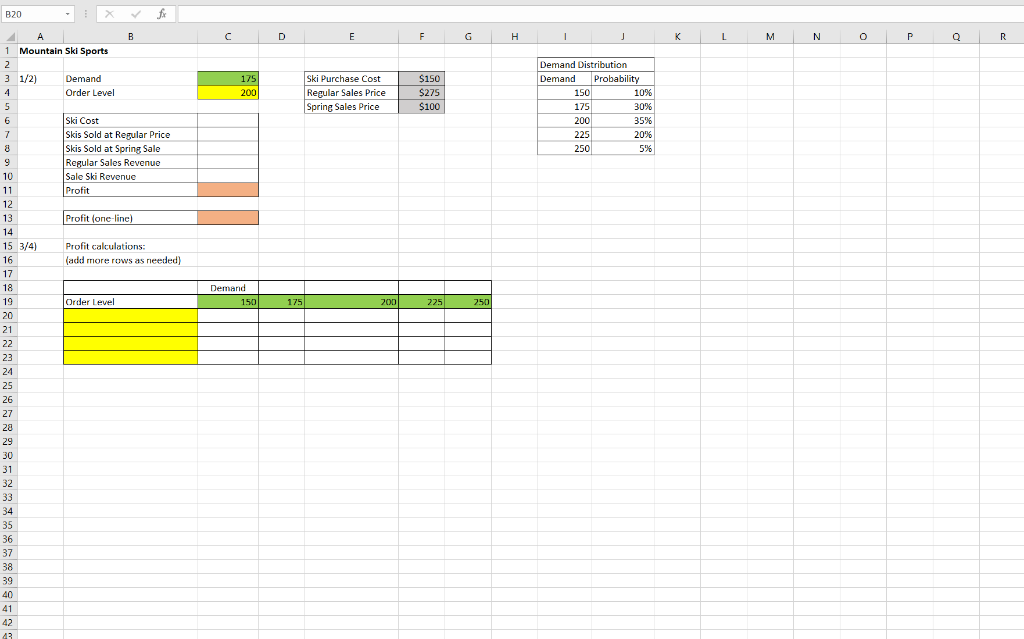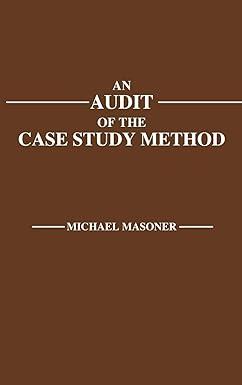Question
BUSINESS ANALYTICS Late in the summer, before the start of the school year, you decide to make a quick phone call to your old college
BUSINESS ANALYTICS
Late in the summer, before the start of the school year, you decide to make a quick phone call to your old college roommate Jeremy Hertz, who now lives in Aspen, Co where he runs a ski-equipment shop. I love living in a ski town, says Jeremy. Its great here all year round! Why dont you come for Labor Day weekend? Itll be beautiful, we can do some hiking and eat in all the good restaurants before they get too crowded. Plus, Jeremy continues, arent you taking a Business Analytics Course? I could use your help with my stocking decision for the upcoming ski season.
How could you resist? So Labor Day weekend finds you in Jeremys apartment, planning your next day hiking excursion. But first, you say, tell me about your stocking problem.
Jeremy says Why this is hard, is that demand varies. Some seasons Ive have requests for 250 skis, but one bad year I could only sell 150. Plus there are other complications. If you could help me figure out how many skis to order this year, Id be truly grateful. Some additional information:
- He purchases skis from a manufacturer each fall for the coming winter season.
- The manufacturer he works with only sells skis in lots of 20.
- The most popular intermediate model costs $150 and sells for $275.
- Special orders take too long, so he cant sell skis he hasnt ordered/stocked in the fall.
- If he orders too many skis, those left over at the end of the winter are sold at the stores spring scales for $100.
- Sales over the years is summarized in the table below.
Demand Prob
150 10%
175 30%
200 35%
225 20%
250 5%
Technical Analysis
- Assume Jeremy orders 200 skis. On the template, fill in the formulas for the given quantities (for a given demand, given an order level of 200). The formula should have only cell addresses (so no embedded numbers).*
- Once youve worked out a formula for the profit, with the intermediate calculations showing develop a single cell formula to calculate the same thing. (Or, skip this step and learn how to use the Data Table function in Excel.)
- What are sensible order levels? Set up rows in the table for each sensible order level.
- Use your formula (or the data table function) to determine the profit for each demand/order level pair. (The $s are important here.)
- Do whatever you wish, to help Jeremy choose how many skis to order. Remember, he does not control the demand, but he does know the probabilities of each demand level.
Fill out the Excel provided

Step by Step Solution
There are 3 Steps involved in it
Step: 1

Get Instant Access to Expert-Tailored Solutions
See step-by-step solutions with expert insights and AI powered tools for academic success
Step: 2

Step: 3

Ace Your Homework with AI
Get the answers you need in no time with our AI-driven, step-by-step assistance
Get Started


